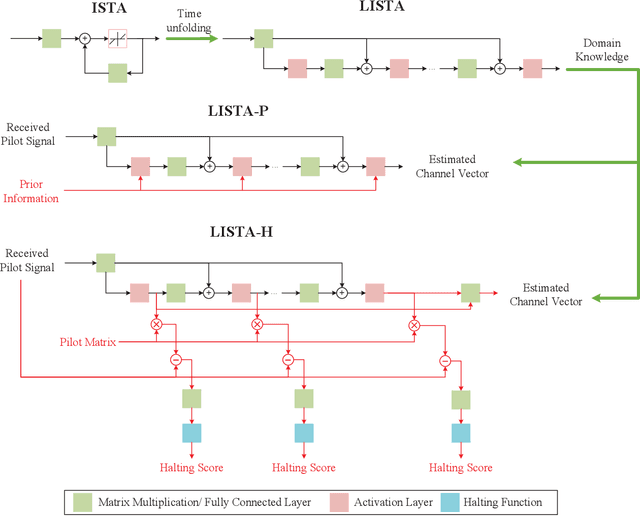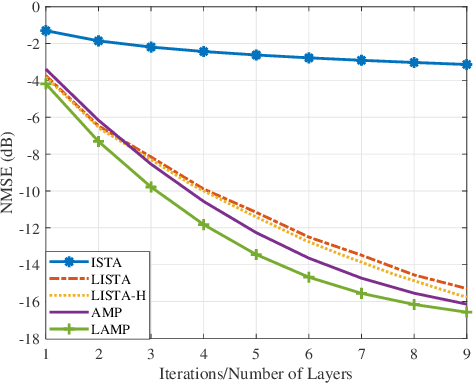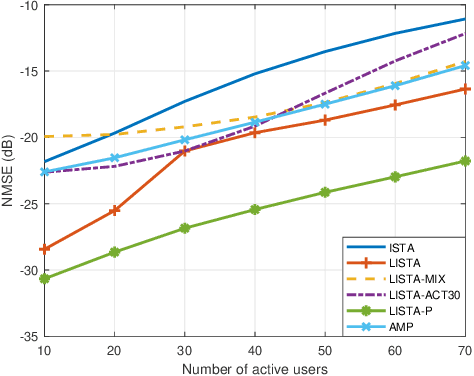Data-Driven Compressed Sensing for Massive Wireless Access
Paper and Code
Sep 28, 2022



The central challenge in massive machine-type communications (mMTC) is to connect a large number of uncoordinated devices through a limited spectrum. The typical mMTC communication pattern is sporadic, with short packets. This could be exploited in grant-free random access in which the activity detection, channel estimation, and data recovery are formulated as a sparse recovery problem and solved via compressed sensing algorithms. This approach results in new challenges in terms of high computational complexity and latency. We present how data-driven methods can be applied in grant-free random access and demonstrate the performance gains. Variations of neural networks for the problem are discussed, as well as future challenges and potential directions.
 Add to Chrome
Add to Chrome Add to Firefox
Add to Firefox Add to Edge
Add to Edge